Why Has Batman’s Origin Remained So Iconic?
Batman may be one of the greatest superheroes of all time. Not only is he accepted in the ranks of heroes far more powerful than him, but he has also stayed more or less the same since his debut in 1939. While other characters throughout comics and the rest of fiction have undergone too many reboots, retcons, and updates to keep track, Batman has retained the majority of his basic features, not the least of which is his origin story.
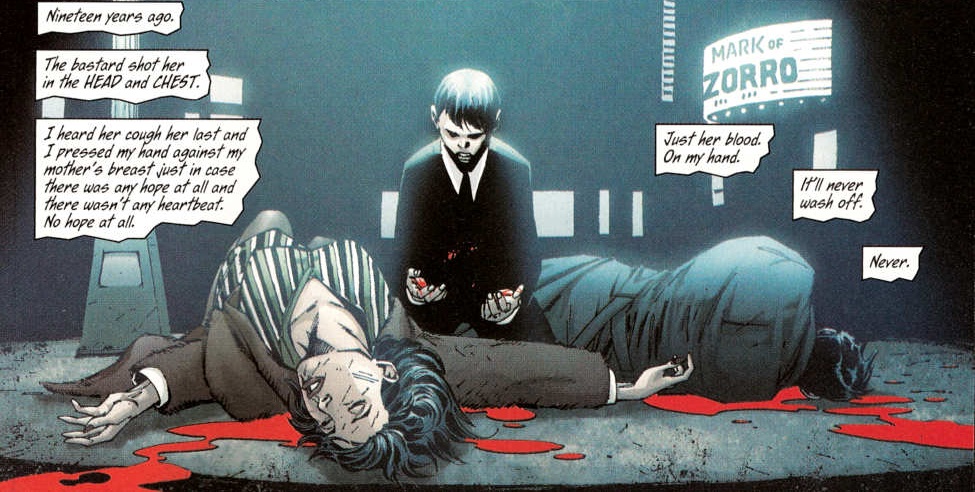
In case readers somehow don’t know the story or need a refresher, Batman’s origin goes like this. Young Bruce Wayne (eight to ten years old) and his parents, Thomas and Martha, are walking through an alley in Gotham City at night. A man with a gun approaches them, demanding valuables. In the ensuing altercation, both Thomas and Martha are shot and killed as Bruce watches. The trauma haunts him for years, eventually motivating him to become a vigilante crime fighter. His ultimate goal is to prevent the tragedy of his childhood from happening to anyone else in Gotham.
Almost 80 years of Batman comics, television shows, films, and animated movies have used this same origin story. Of all superheroes, why has this character’s backstory stayed the same over the years? What makes it timeless enough to survive the generations?
Who Killed Batman’s Parents?
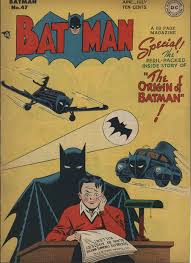
Before diving in to why this origin has remained mostly the same, it is worth acknowledging how it has changed. One thing that does not remain constant is the identity of the Waynes’ murderer.
The first and most common character in the role was Joe Chill. In Batman #47 (June-July 1948), Batman finds Chill, who has become a small-time crime boss in the years since killing the Waynes. Batman no doubt struggles with the question of taking final vengeance on his parents’ killer, despite his usual aversion to killing. However, when Chill’s henchmen learn their boss created the superhero striking fear in the hearts of Gotham’s criminal underworld, albeit unwittingly, they kill him. The comic book writers spare Batman from the choice and the guilt of either breaking his most important rule or leaving Chill alive.
In the 1989 film Batman, the Waynes’ murderer is changed to Jack Napier, a sociopathic mobster who later becomes the Joker (a character just as long-lived, well-known, celebrated, and frequently analyzed as Batman). At the end of the movie, Batman realizes the Joker, the criminal terrorizing the city, is his parents’ killer. Most likely motivated by this fact, Batman forces the Joker to fall out of a helicopter to his death.
Another version of the murderer’s identity provides a third version of Batman’s response. In the TV show Gotham, the Waynes’ killer is a man called Matches Malone. The show’s version of Bruce Wayne, still a child, finds Malone and, like other incarnations of Batman before him, considers killing the murderer of his parents. However, in an important moment of character development, Bruce chooses to use Malone for long-term strategy rather than exacting immediate vengeance.
Over the years, this aspect of Batman’s origin has been updated in parts of the canon, if not outright changed. In the movie Batman Begins, Ra’s al Ghul takes credit for the economic pressures in Gotham that led to the murder of Bruce’s parents. This may be why Batman lets Ra’s die in a train crash.
Many Batman stories include a secret society called the Court of Owls that controls many rich and powerful people in Gotham. When Thomas and Martha Wayne interfered with the Court’s affairs, so the story goes, they were killed at the Court’s behest. The Court of Owls then became another enemy of Batman.
Updates like these mainly add another character (or shadowy entity) for Batman to target and another opportunity for him to make a difficult decision. Indeed, the reason this detail of his origin is flexible is to provide multiple opportunities for character development. Sparing (technically) a small-time crime boss is one thing. But the realization that the Joker killed the Waynes, in addition to everyone else he had murdered and would murder with absolutely no remorse, was the straw that broke the 1989 film’s Batman’s morals, in that case. This poses the question to everyone in Batman’s audience: what would it take to make you break your own moral boundaries?
An Infinite Multiverse of Dead Parents
Even stories set in alternate universes often give Batman an origin story similar to the “Earth-1” canon. The versions that are different lead to an intentionally altered Batman. Writers usually envision a new Batman first and then give him an origin that explains how he became different from the canon. One example is the child-like comedic parody whose parents were merely shoved by a bully, not killed.
Another example makes an appearance in Superman: Red Son. A Russian known as Batmankoff was orphaned by the KGB and grew up to be an anarchist challenging the Soviet government, including a communist Superman.
A similar situation began the story of Owlman. This alternate Earth doppelgänger was made to be Batman’s evil opposite. Owlman’s family was killed not by a mugger but by the police, causing him to declare war on the law rather than the criminal underworld.
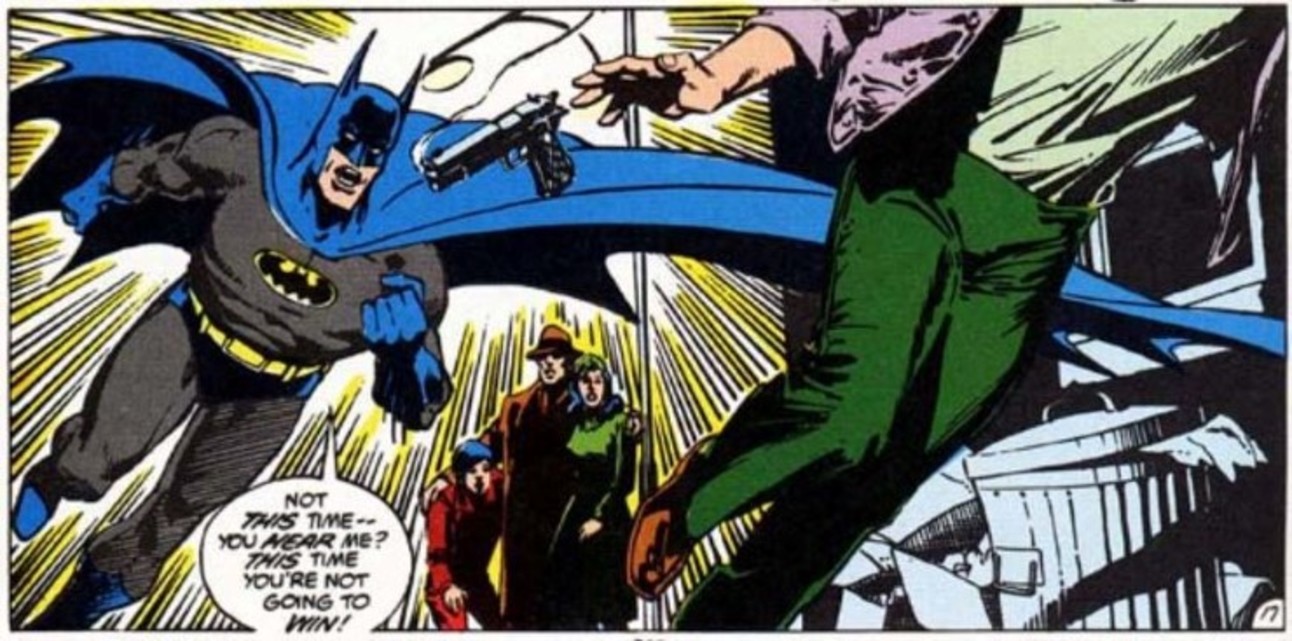
In “To Kill a Legend!”, Batman from the original canon travels to another universe where another version of the Wayne family is about to face the same tragedy he went through. When Batman appears in the alley and saves the Waynes, young Bruce is inspired and later takes up the mantle of Batman out of gratitude instead of vengeance. This alteration to the origin makes a much happier version of the character.
In the universe of The Flashpoint Paradox, a mugger shot young Bruce instead of his parents. Thomas Wayne killed the criminal immediately and went on to murder many more, even using guns, as a much darker version of Batman.
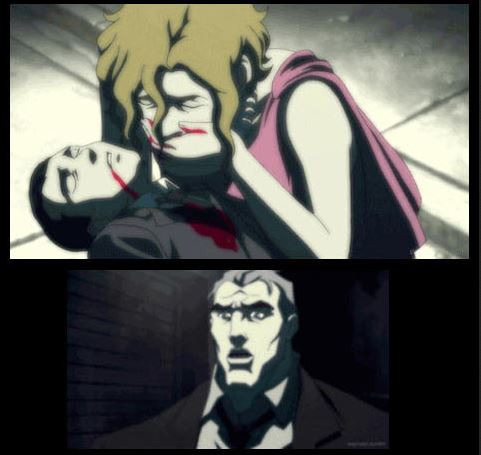
The most likely reason the Batman of the Flashpoint universe was so different from the original is the tragedy struck in his adult life. He did not devote decades to training like Bruce did, but also, the trauma affected his grown mind differently.
As clinical psychologist Dr. Ali Mattu explains it, “trauma happens when a fundamental belief you have has been challenged in some way.” Young Bruce Wayne, like many children, likely saw his parents as constant and untouchable presences. Seeing them die like that challenged this fundamental belief, with lasting consequences such as an aversion to guns and killing. As Jeff Parker, one of the artists who worked on Batman, said in a PBS interview, “his origin is focused on his parents’ murder, and opposing fatal action like that is core to who he is.” Flashpoint’s Thomas Wayne, on the other hand, had different beliefs and so experienced different trauma and handled it in different ways.
The traumatic aspect of Batman’s origin may be the key to its long-lasting influence. According to an article in the Atlantic, Bob Kane, Batman’s creator, experienced a traumatic event in his own childhood. He got into a fight with a gang of bullies, fancying himself a younger version of Zorro, his favorite movie hero. Not only did he lose the fight, but he lost two other important things: his violin and, briefly, use of his drawing hand. This event stayed with Kane for years and apparently influenced the character he would go on to create.
Another effect of Batman’s childhood trauma is anger toward thugs and common criminals. He is convinced that muggers in dark alleys are the scum of Gotham that need stopping.
Compare to Oliver “Green Arrow” Queen, especially the one portrayed on the CW’s Arrow. His father died in front of him as well, but it was due to the acts of corrupt businessmen. Thus, Green Arrow focuses on corruption in his city. He targets the heart of the disease, as it were, while Batman seems to mostly focus on symptoms.
Green Arrow is based on Robin Hood, stealing from the rich to give to the poor, while Batman is based around striking fear in the hearts of cowardly and superstitious criminals. The differences in their origins reflect this difference in their characters.
The importance and impact of Batman’s origin story have contributed to its timelessness. In fact, its influence extends into the past and future, even outside comics.
The Dead Parents Trope
Batman being an orphan was by no means an original idea. It doesn’t take much study of storytelling to realize dead parents is a trope so common it’s sometimes considered cliche, especially in superhero stories.
YouTuber Ben Carlin once explored the Orphan Trope (or at least the One Dead Parent Trope) in Disney films and the rest of fiction, including Batman. He gave this reason for so many storytellers using it: “Perfect isn’t interesting… But the [story] about the kid who works after school to help support a single mother and then goes home and stays up late eating a dinner they cooked for themselves… is interesting because we are watching our hero make a decision. We are watching them make the right decision, despite having a perfectly acceptable excuse not to. And we all want to be that person, or at some point in our lives have wanted to be that person… These stories allow you to live vicariously through a precarious situation.”
Although those of us with parents do not envy Bruce Wayne’s situation, many of us would like to be someone as capable as Batman. We understand that normal people do not become Batman, and it takes a significant event to motivate someone to turn themselves into Batman. We admire Bruce Wayne even more for choosing to be Batman when he could have handled his trauma in worse ways. Even if we can’t relate to Batman’s specific tragedy, we can take his actions as encouragement to turn our own hardships into motivation to help people.
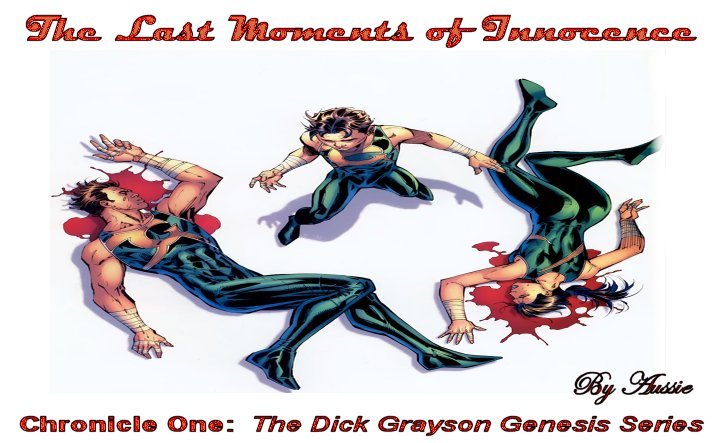
This trope carries through even Batman’s own story. Dick Grayson lost both of his parents at once in an origin story similar to Bruce Wayne’s. Bruce took Grayson in and trained him to become Robin, Batman’s sidekick. He helped Grayson use his childhood trauma in a very similar way to how Batman uses his own.
On the cartoon Batman Beyond, an old and retired Bruce Wayne trains Terry McGinnis to be a new Batman. Terry is motivated by the murder of his father, again reusing the tragic trope of the original Batman. Terry even gets opportunities to challenge his father’s killer, like his predecessor before him.
The Dead Parents Trope does not feel especially repetitive with Dick Grayson or Terry McGinnis because it is a time-honored and well-executed trope.
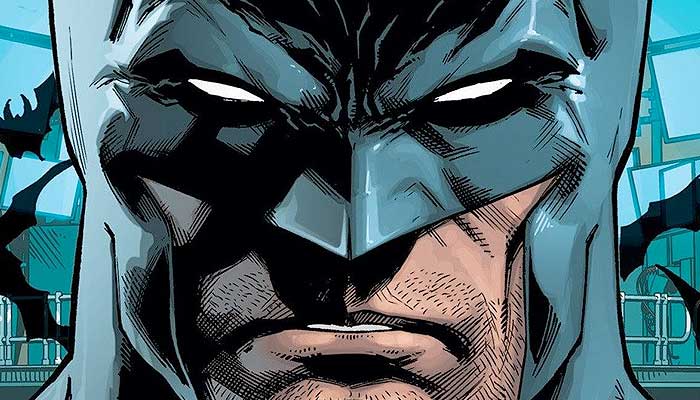
Bruce Timm, one of the artists who worked on Batman, put it this way: “All those different versions of Batman, they’re all equally valid. That’s the weird thing about it. You can play Batman as the happy-go-lucky father figure… and then you can take it really, really dark because of the… very, very dark origin story.” Every time Batman is rebooted or re-imagined – whether it is to fit a new era or to appeal to a new audience or just to answer, “What would happen if…?” – the fact that his origin story still fits the character is a testament to the power and timelessness of that story, which further justifies the continued use of the story in the next iteration of Batman.
In the end, Batman’s origin story stresses his humanity. The cape-and-cowl-wearing persona was born the night Bruce Wayne’s parents died. But unlike Clark Kent’s secret identity or Peter Parker’s masked persona, Batman is just as human as Bruce – “no superpowers, no alien origins, and no foster parents who inspired him to use his powers for good,” as PBS Newshour said.
And just as with all the examples of the Dead Parent Trope, Batman’s humanity makes him very relatable. Batman artist Robert Greenberger explains the story taught us, “you didn’t need to come from another planet. You didn’t need a power ring from another galaxy. You just needed to be the very best human being you possibly could be.”
What do you think? Leave a comment.

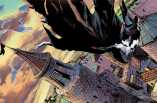
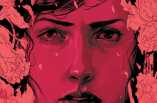
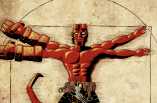
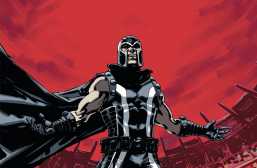
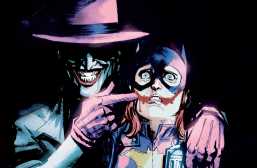
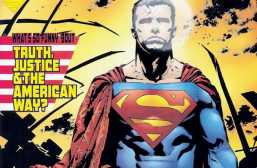
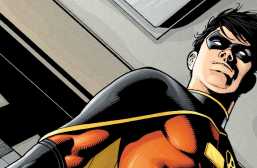
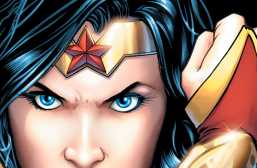
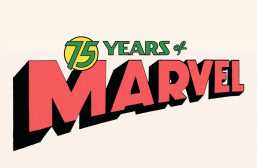
Batman is my favorite superhero and The Dark Knight is one of my favorite movies of all time
I think people undervalue Batman’s origin. They call it unoriginal, and it is to an extent. Dead parents aren’t uncommon for a hero, since they solve a lot of narrative problems and act as an easy motivation for a crime fighter.
Part of the reason that Batman’s origin is “unoriginal,” though, is that it’s Batman’s origin. He’s one of the originals, and he’s lasted because Batman is an incredibly compelling character. For one, Batman is a cathartic figure to anyone who’s ever experienced hardship in their lives. For another, his origin is what defines him. Superman is Superman, and can theoretically be viewed without his origin. Same goes for Spider-Man, or Wonder Woman. That’s not true of Batman. That moment in Crime Alley cannot be separated from the Batman of today.
I agree with most of that expect the Spider-man part. the loss of his uncle Ben is the only reason he became a hero. Until then he was a man just trying to profit off his powers.
I actually side with Ivette on that point. “Great power comes with great responsibility.” Anything could have reminded him of that truth, whether Uncle Ben died or not. His death was probably the best way for the writers to do it, but his character is fairly separate from his origin.
That’s one of the more interesting things about Peter’s relationship with Otto Octavius that’s rarely touched upon explicitly. Otto is essentially Peter with two differences: he didn’t have the guidance of Uncle Ben (Otto’s father was abusive), and instead of getting powers, becoming confident, and outgrowing his nerd status like Peter did, Otto remained a picked-on, weak, bitter person into adulthood. And when he finally gets some power, Spider-Man taunts him and beats him up, reminding him once again that he’s a weakling who will never quite get what he feels he deserves.
… stop talking. Seriously. Spider-Man’s origin defines him to an extent that Batman’s doesnt come close to. It’s a vastly more personal story. Bruce couldn’t have stopped his parent’s killer. Peter’s uncle died because he didn’t do the right thing when given a chance.
None of the superhero origins are all that impressive, precisely because they’re incredibly simplistic and derivative. But Spider-Man’s is probably the best of them.
Okay, okay. No need to be rude.
It sounds like someone should do an analysis of Spider-Man’s origin story similar to this article. Research into variations across reboots and alternate universes would add clarity. And you may have a point that Spider-Man’s is more original, deep, and/or personally impactful than others. Peter Parker has not one but two Dead Father Figures; does his story use any other tropes?
I’m putting this topic in the Suggestion section. Thanks for the input, folks.
Batman’s origin resonates to me the most. His story is borne out of a tragic loss, witnessing the murder of both his parents in a city hopelessly riddled with crime. It sets up a mythos that has been successfully interpreted and reinterpreted by the likes of Burton, Miller, Snyder, Nolan, Loeb, etc.
I think what helps is that Batman is essentially a man, albeit a very wealthy one with a very unhealthy obsession, a resolute drive to save Gotham in honour of his father’s legacy.
I’ve recently finished reading Miller’s Year One (only for the second time), and loved it, hence also why I really like Nolan’s Batman Begins.
There are many “origin” stories. All of the really old comic characters have been rebooted many, many times. Each time the origin story changes a bit.
Yeah, but most characters have like a general backstory. Mr Freeze being the whole sick wife, he freezes her and is trying to find a cure for her disease. Two Face being a 50/50 burn victim that felt betrayed by Batman/Bruce Wayne I think, Harley Quinn being persuaded to join the Joker and subsequently idolizes him, etc.
Indeed. And Batman’s origin story has probably changed the least out of any comic book superhero as long-lived as he is, especially considering how many “reboots” there have been.
Funnily enough, Nora and Harley don’t really have comic book origins, they were both introduced in The Animated Series. And even then, in the New 52, Nora’s storyline was changed so that she was never married to Viktor. She was just someone that he was obsessed with when he worked at Wayne Enterprises.
I like the New 52’s version of the murder of the Waynes. Joe Chill is an alcoholic who lives in the poor conditions of the slums. When Joe put them at gun point he didn’t know who they were, he did it to get money to buy more alcohol, and he shot them because Bruce’s mother scream and he panicked. Bruce thought it was some mob assassination that was part of a grand plan and he obsessed over it. Years later he found Joe Chill and after being confronted by the truth that there was no master plan he left Gotham to learn about himself, learn new ways of thinking, and trained his body which eventually lead him to become Batman. I love this because it’s not some master plan by the Gotham’s Mafia or Ra’s Al Ghul. It was a one in a million random event that happens everyday. Poverty, addiction, mental illness, are some of Gotham’s worst enemies not only The Joker or Scarecrow.
A good essay. This provides with an interesting perspective on Batman.
Really interesting article. I have always found the origins of Batman important, as well as how they inform the concept/identity of Bruce Wayne/Batman.
I’ve always wanted to read the first time his background was explained.
I think it’s safe to say we don’t know all the details of Bruce’s journey towards Batman in any origin story. For example, take what you know from any of the Batman media: his parents died, he trained to perfect his skills, he came back to Gotham to find his parents’ killer and fight crime. However, in between those pivotal events in Batman’s origin, there are a few time gaps between any of those things happening.
When Bruce’s parents died he was a kid. Depending on who the writer was at the time any particular Batman story was written, he was anywhere from 8 to 15yrs old. When he came back to Gotham as Batman he was what, 20 some years old? What was he going through when he was 9 or 12 or 17? or 20? What was Alfred going through? How were they living? What were they doing in Gotham? No one knows because it really wasn’t explored in such great detail before.
So Gotham is telling his origin story, but it doing it in a way that’s never been done before. Meaning, they’re filling in all the timeline gaps between the time his parents were killed and his return to Gotham as Batman. It could be canon, because whose to say it’s not? As far as I recall there has never been a “Legend of Bruce Wayne” comic that told his life story.
That’s a good point. The fact that no one has filled in those gaps is just another way the origin story has remained unchanged through the years. I think it’s intentional, though. Batman was technically born the night Thomas and Martha Wayne died. Anything Bruce Wayne did in between that time and putting on the costume is not the story of Batman, so it doesn’t really belong in a Batman story.
To compare to other superheroes: We get to see things that happened to Matt Murdock after he lost his eyesight and got super powers because there’s not much of a division between Murdock and Daredevil, not as much as with Batman and Bruce Wayne. Anything we know about Superman and Supergirl’s childhoods is the story of Superman and Supergirl creating the identities of Clark Kent and Kara Danvers – again, different from Batman. All we need to know about Batman’s childhood was the thing that made him become Batman.
Gotham is not the story of Batman, and it’s not about Bruce Wayne, either. It’s about the craziness of this city before Batman showed up. I would personally argue it can’t be included in Batman-canon, but that’s because it’s inherently a story of a Gotham City that doesn’t have Batman in it. The parts that focus on Bruce are about a Bruce Wayne without a Batman-identity to protect him, which is an important distinction.
I’m torn between whether or not Gotham can be included in the origins story for Batman. Perhaps it would would be better to call it an origin story of Gotham and changing our understanding of Gotham. One could argue that Gotham is a character in the Batman story just as much as much a the Joker, Ivy, or Two-Face. Some artists portray Gotham as a city with two identities, one during day-reminiscent of New York or Detroit-and a different one at night-crime ridden and rotten. In Batman: Arkham Origins, Gotham was nearly always covered in darkness. The character of Gotham changes the Batman that inhabits it.
By that same token, Gotham had as much a role in shaping Bruce as the death of his parents. His parents death served as a catalyst, bringing young Bruce’s attention to the crime infesting Gotham. But it’s crime all around and inability of the justice system to address the crime that really drives Bruce to create the Batman persona. The justice system was unable to save the city’s, so he must go outside of the system.
Batman’s arguably got the best comic book movies on top of the best comic book games with the The 89 Batman, the Dark Knight Trilogy, and the Arkham games. This guy IS the greatest superhero of all time
Batman is my second favorite DC superhero, Superman will always be my first.
In my opinion Batman is the greatest superhero of all time. Who agrees? All he achieved is the result of strength, intelligence, bravery and unbelievable amounts of physical hardiness. He doesn’t need any super powers and thats what makes him such a legend in the DC universe. I admired this superhero since my childhood and even now, at the age of 29 I’m still a big fan of Batman.
Out of absolutely EVERY SINGLE super hero/heroine, Batman is my all time favorite. He doesn’t rely on super powers or anything like that, he relies on tact, strategy, skill, logic, and deduction skills that are all amazing, even more so when he learned all of this. All the cool gadgets is just an added plus. He is someone you should look up to, because he relies on what comes naturally, unlike super powers. If a super hero/heroine was born with powers, they have an excuse. It comes naturally to them. But others who gained it through tech, like Bruce Banner, I think aren’t as good as Batman. Sure, they’re more powerful, but they have super powers. But, for instance, Iron Man, doesn’t have super powers, yet relies on a super suit. Batman just goes in a slightly bullet proof armor that still won’t protect him from the worst of blows, yet he pushes through. I admire Batman. He does his work through skill and gadgets, which just make what he could do without them take a lot less time.
Batman is one of my favorite heroes ever ! Since I was a kid. He is the only hero I like in the DC comics. I never cared for the other superheros in DC
Batman the greatest superhero of all time, best origin, best costume, best villians, best skills, simply the best. Superman is right next to him though.
I’m typically not a fan of superheroes and such. I get the hype, but it’s not for me. Batman, on the other hand, has always been my favorite. It was the character that were ahead of all the rest superheroes in fiction. The mystique, the amazing outfit, the universe he’s in, his amazing gadgets, his foes, his detective-skills and the fact that he’s simply a human being, with no added aids to his physique – makes him the greatest superhero that ever was. I’ve been in many debates over my opinion and I stand strong behind it. Superman, Iron Man (which is also a human, actually), The Hulk, Spiderman. You can debate about any superhero to win your case, but I’ll always choose Batman, with confidence. If I had to choose one superhero from the Marvel- and DC-universes, I’d most likely favor the ones that are merely humans (such as Batman, from DC and Iron Man, from Marvel), because it makes their contributions that much greater. But choosing between Iron Man and Batman… There is only one clear winner, by far: Batman.
I agree. I’ve never really liked other superhero stuff but for some reason have always loved Batman. There’s something about him not having an actual superhuman quality that has made him so interesting. It just seems so cheap to have a character like Superman for example who has super-strength, heat vision, ability to fly, etc. But Batman is just a guy, a super rich guy, but still just a guy.
Also: The Flashpoint story was so good! That and the Killing Joke are by far my favorite Batman arcs.
Honestly, this is a fascinating analysis, and one I hadn’t considered. Nice bit of poetic symmetry, but it’s one they state in most of the incarnations I’ve seen Batman will speak of the night that “made him” the night they died. So I think it’s also the stresses the writers put on this truth that makes it more human, and more interesting. The fact that this trauma not only shaped him, but he is aware of it entirely and accepts it.
In short he is batman, his parent’s death is why, and he is at peace with that.
Best origin story, Best in comics, Best in movies( live and animated), Best in games, Best in costumes, Relatable character, wise, Always prepared for the worst, The one who uses his time and resources in the most efficient way. Known to push his limits,Fear is his weapon, You know who he is, He is the Vengeance, He is the Knight, He is Batman!!
Kevin Conroy is my favorite BAtman, even if he didn’t technically act as his, his voice and persona were perfect for Batman.
Batman – The Animated Series was one of the best. It captured the 1940s film noir feel that the original comic book was spawned from.
I freaking love Batman. What I absolutely hate about his story though is how he’s like: ”I will ensure no one suffers like I did” yet he keeps the Joker and other serial killers alive. You’re already breaking the law and taking it into your own hands. Not killing them just makes you an hypocrite.
Back when Batman was first created, no one wanted to see a comic-book superhero kill anyone. And again, Batman has remained mostly unchanged for decades. Nerds have come up with various reasons why that aspect of his character has stayed the same, but the important part is changing it would ruin the hero we all know and love. Just look at Batfleck.
Sometimes I prefer the simpler origins. Like in All Star Superman. Boiling all of Superman’s Origin down to 6 awesome panels.
I’ve never really realized how many different versions and changes there were to Batman’s origin story. It’s really interesting to see how each change still works accordingly to his character. I most definitely agree with you about how Batman’s humanity is what makes him so relatable and timeless. I have watched Batman cartoons since I was a child and still enjoy watching anything that involves Batman even now!
My favorite origin story has to be the one from Batman Begins. It’s got all the best aspects of all his other origin stories combined to create this incredibly intriguing story.
One of the greatest thing about batman is that anyone can become him if they did the training also is the fact that despite the lack of superpowers his will is almost unbreakable
Batman is the greatest fictional character of all time. And so is the Joker.
If you want a good origin story for “The Trinity” (a.k.a Batman, Wonder Woman, Superman) I would suggest the Earth One Series for them, an If you want more about GCPD there is Gotham Central to oook into.
Ugh. Earth One Batman is the least Batman Batman that’s ever Batman’d.
Interesting perspective. Say more?
Batman Begins could’ve been a ten minute movie! Complete with training montage. I love a good montage.
I love the Earth 2 Batman II, Flash, and Green Lantern origins. They just work with the characters.
One thing never changes about Batman, his parents’ death.
I am a fan of Batman, however I don’t believe they will get a better version than the Christian Bale one. He broke the mold and it was a shame he didn’t continue its legacy.
Kevin Conroy did the best Batman even if it was just the voice.
Very good article! I would add though, that one main reason I see Batman’s origin story is so appealing to the public, is because many can relate to not having a parent-figure and having to fend for themselves as best they can. Not everyone has a happy family involving both parents and siblings together.
It’s hard to put a good spin on such a solid foundation. As explained, the dead parents trope is a well known literary tool especially in hero stories super or otherwise however the nuance comes with its effects on the character and what they become as a result. I think part of the appeal is watching characters face some of the same grim realities that many of us may face but in most circumstances have the means to lash out against their “oppressor” be it fate, the system, Joe chill etc. I feel watching someone be affected so deeply by something that it alters their path provides us with some catharsis, using their trauma as a placeholder for our own.
Ever remembered when Thomas Wayne became Batman and Martha became the Joker?
Ah, yes. The Flashpoint Paradox, an alternate world in which Bruce dies instead of his parents. I actually mentioned it in an article I wrote about Batman’s origin story. Have you read it? It should be easy to find if you’ve found this comment section. 🙂
Batman or his origins have always been of my interest. The article you posted here caught my attention and got me a different perspective of the character.
I found the take on this article interesting, the different perspectives of Batman’s origins make it feel like at this point it is as classic as Greek mythology, and this deconstruction makes this evident.
I couldn’t agree more!!
If you want a good origin story for “The Trinity” (a.k.a Batman, Wonder Woman, Superman) I would suggest the Earth One Series for them, an If you want more about GCPD there is Gotham Central to oook into.
Great article and analysis of the “dead parent” trope. I think you hit the nail on the head at the end of your article. What makes Batman and his origin story so appealing is his humanity. His tenacious self-motivation and extreme discipline makes him heroic as opposed to super powers. Despite his trauma, there’s a part of him that we all see in ourselves.
Batman’s origin is iconic because he uses trauma to help inspire him to fight crime rather than in worse ways. He could have become a criminal but chose to be a hero instead.
So many superheroes’ origins get rebooted because either:
– they have a tech origin, and tech moves on, e.g., Spiderman’s radioactive spider (in the atomic age) later becomes a genetically modified spider.
– an artists wants to explore some aspect of the character and uses a reboot of the origin to shift the context, e.g., Alan Moore’s Swamp Thing.
But (as identified in the article) Batman’s origin is universal. Cliches exist for a reason. Tech wasn’t a big part of the deaths, and you can take a character in a lot of directions from this single origin point. So there hasn’t been a need to change. And there is also tremendous resistance from the fan base to big changes. It would be a brave writer who tampers with that origin story.
I have always wondered how we would view batman without the tragic death of his parents during his childhood as a backstory. Perhaps more like a number of the enemies he faces?
There are many superheroes that I would really enjoy from all walks of the comic book age.
The public zeitgeist’s fascination with the Batman seems tied to his origin. Batman serves as a symbol of hope for not only Gotham but in terms of the world still upholding justice, which is ironic considering that vigilantes are illegal.
The death of his parents sparked a desire to not just instill fear in the criminal world that took his parents’ lives but prevent others from experiencing the trauma he experienced. How successful he is at that is honestly debatable, but that’s how I see it.
I like batman and think he is the best hero on the comics world
The Protean Self: Human Resilience In An Age Of Fragmentation (1995) by Robert J Lifton suggested that human beings in the contemporary age are orphaned fluid identities in an ever changing urban modern environment. If there is something to what Lifton argued then Batman’s origin may resonate with most of us: his watching his parents die to leave him alone in a violent cityscape, pushing him to adopt two personas (Bruce Wayne and Batman) reflects our own abandonment issues in two working parent homes with high divorce rates and our subsequent need to fit in within diverse social contexts by adopting more than one identity.
So cool! Very interesting to see it all broken down like this.
Very interesting article!
It made me wonder how could Batman’s origin story be tackled if they make a sequel of Joker. Per se, factually, I suspect it won’t be that different from what we already saw since Batman’s creation, as his parents are, at the end of the film, killed by what seems to be a regular mugger, even just a regular guy, but deeply linked to the riot the Joker started, to the violent instincts he stirred up.
But – and I might get a bit off-topic here if so I’m sorry – given the fact that we first learn to empathize with Arthur Fleck, how could that deep humanization of who is supposed to be the ultimate villain – indirectly – responsible for the death of Bruce’s parents, affect this revisited story of Batman, and more especially his origins – perhaps on a more subjective level, maybe questioning the viewer’s emotional implication?
And, here I may digress, how could be, then, tackled the fight, the war, between Batman – a hero we know, appreciate and root for – and the Joker – an iconic villain but main protagonist of a movie that made us care for him, empathize with him?
[I hope my (late, rather long and maybe a bit off topic) comment is understandable, as I am neither a native English speaker nor fluent in English – yet!]
One angle I wish this element of the Batman backstory would invest more energy in is how mundane it is. So many of Batman’s more iconic stories are on some level about the rising absurdity of people in costume doing dastardly deeds in the dark while a man in a cape and mask comes to beat them up, and how that must speak to some general brokenness in them all or in society at large, but as a result I feel like there is intense narrative fuel in the fact that Bruce Wayne, a self-taught detective and martial artist with reams of personal information on several crime families and single-handedly fights crimes akin to domestic terrorism on a seemingly nightly basis, was put on this path by (according to the majority of plotlines) a run-of-the-mill mugging. It’s especially telling to me because his public persona is still a rich, powerful man, perhaps even more scrutinised than his parents would have been, but I don’t think there has been a single time in the comics where his aloof playboy dandy persona has never left him in a position to be robbed, beaten, or kidnapped – a fate that seems to befall almost every other citizen of Gotham City once a fortnight.
I appreciate that this goes over how the Wayne murder increases in scale with each incarnation. You start with a basic mugging by a basic mugger who makes it small time in the criminal underworld. From there the perpetrator becomes a big shot in the underworld, then a shadowy cabal of the rich and powerful. It all fits how the scale of things has grown larger in comics.
That’s a good point. As the superhero gets more popular, his origin story becomes more impactful. Kind of like how the Flash’s origin went from “just taking my smoke break near this shelf full of chemicals, what could go wrong?” to “particle accelerator explosion breaks multiple holes in the fabric of reality and creates a new race of people who can break physics.”
I didn’t even mention the Court of Owls conspiracy storylines.
Batman’s origin story is one of my favorites, as I always get impressed by his morals and his will to fight crime as a hero when he could have fallen into deep nihilism. The fact that he chooses not to kill every time he gets this chance and seems tempted for even just a second by the most repulsive and evil psychopaths (Joker, for example) never fails to put me on edge.
The impact his origin story has still gets me. It starts small, then the more his lore expands, the more sinister and deeper it gets. The Court of Owls conspiracy storyline has got to be one of my favorite Batman comics. The fact that they were involved with the Wayne family that early in the 17th century with Alan Wayne is crazy… the Court has been around for so long. Their creation was a stroke of genius to introduce a mystery behind Thomas and Martha Wayne’s murder, thus turning a robbery gone wrong by a small-time mugger to a frightening conspiracy from a cabal.
As I said, Batman’s lore is just incredible.
The Batman as a character offers a spectrum of genre ranging from dark comic to detective thriller!
It seems that Batman has a certain relatability which makes him more real.
The power of relatability makes the world go round. People have loved Batman for decades and he will continue to live longer then humanity itself, as how invincible he seems even while being completely human is drawing to readers.
this ended on such a sweet note. well written piece
Iconic
DC wouldn’t be the DC we know without the GOAT Batman. Batman’s character is written so well, no wonder we all love him so much!